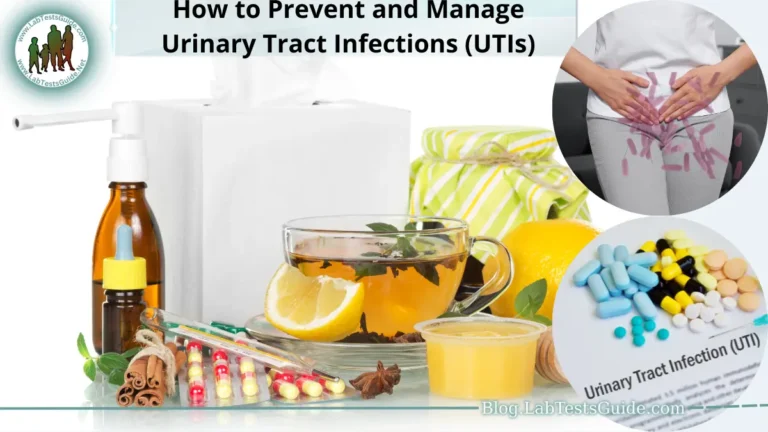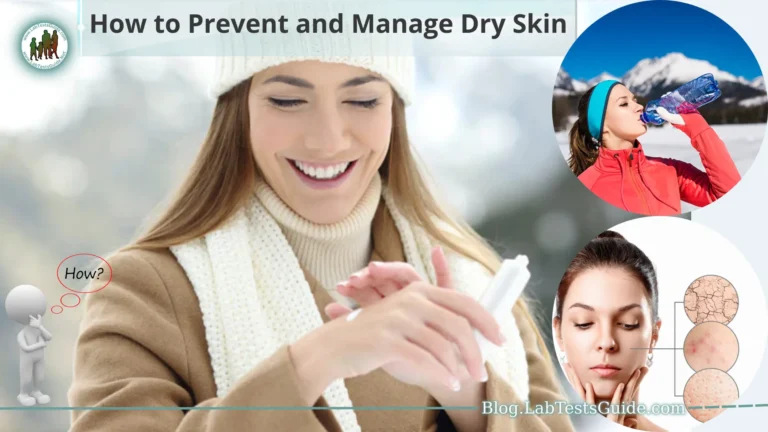Welcome to the comprehensive guide on how to improve your lung health. Your lungs play a vital role in your overall well-being, as they are responsible for the exchange of oxygen and carbon dioxide, supplying your body with the essential oxygen needed for every cell’s proper function. Unfortunately, factors such as environmental pollutants, smoking, sedentary lifestyles, and respiratory infections can negatively impact lung health. The good news is that there are numerous proactive steps you can take to enhance your lung function and protect your respiratory system.

In this guide, we will delve into various aspects of lung health, from understanding how your lungs work and identifying potential issues to adopting healthy lifestyle habits that promote lung well-being. You will learn about effective breathing techniques, ways to avoid environmental lung irritants, and the importance of early detection through medical screening.
What Is Lung Health?
- Oxygen Exchange: Lungs facilitate the exchange of oxygen from the air we breathe into the bloodstream. Oxygen is essential for the body’s metabolic processes and energy production.
- Carbon Dioxide Removal: The lungs expel carbon dioxide, a waste product of metabolism, during exhalation. Efficient removal of carbon dioxide helps maintain the body’s pH balance.
- Respiratory System: Lungs are part of the respiratory system, which includes the airways, diaphragm, and other respiratory muscles that work together to enable breathing.
- Lung Capacity: The total lung capacity determines how much air the lungs can hold, and it varies depending on factors like age, gender, and physical fitness.
- Lung Diseases: Various conditions can affect lung health, such as asthma, chronic obstructive pulmonary disease (COPD), lung cancer, pneumonia, and respiratory infections.
- Lung Function Tests: Medical professionals can assess lung health through spirometry and other lung function tests, measuring lung volumes and airflow to diagnose potential issues.
- Importance of Lifestyle: Maintaining a healthy lifestyle, including regular exercise, a balanced diet, and avoiding smoking and exposure to pollutants, significantly impacts lung health.
- Environmental Factors: Air pollution, secondhand smoke, occupational hazards, and allergens can negatively affect lung health and contribute to respiratory problems.
- Early Detection: Regular medical check-ups and early detection of lung issues can lead to prompt treatment and better management of potential health problems.
- Lifelong Care: Lung health is crucial at every stage of life, from infancy through old age. Taking care of your lungs can improve overall quality of life and enhance longevity.
How to Improve Your Lung Health:
Here are practical steps you can take to enhance and maintain the health of your lungs.
Quit Smoking and Avoid Secondhand Smoke:
- If you smoke, quit immediately. Smoking damages lung tissues and increases the risk of lung diseases and cancer.
- Avoid exposure to secondhand smoke, as it can be equally harmful to your lungs and overall health.
Adopt a Balanced Diet:
- Consume a diet rich in fruits, vegetables, whole grains, and lean proteins.
- Include foods with antioxidants, like vitamin C and E, which can support lung health and protect against oxidative stress.
Engage in Regular Physical Activity:
- Regular exercise strengthens respiratory muscles and improves lung capacity.
- Aim for at least 30 minutes of moderate aerobic activity most days of the week.
Practice Breathing Techniques:
- Learn diaphragmatic breathing and pursed lip breathing to improve lung function and reduce shortness of breath.
- Consider yoga and meditation, which can promote mindful breathing and relaxation.
Maintain a Lung-Healthy Environment:
- Avoid exposure to environmental pollutants and toxins, such as air pollution and harmful chemicals.
- Ensure good indoor air quality by using air purifiers and keeping indoor spaces well-ventilated.
Stay Hydrated:
Drink plenty of water to maintain the thin mucus lining in your airways, facilitating efficient lung function.
- Manage Stress: Chronic stress can negatively impact lung health. Practice stress-reducing techniques like mindfulness, yoga, or hobbies you enjoy.
Protect Against Respiratory Infections:
- Wash your hands regularly, especially during flu seasons, to reduce the risk of respiratory infections.
- Get vaccinated for influenza and pneumonia, particularly if you are in a high-risk group.
Attend Regular Medical Check-ups:
Regularly visit your healthcare provider for lung health screenings and evaluations. Discuss any respiratory symptoms or concerns with your doctor promptly.
- Avoid Harmful Occupational Exposures: If your job involves exposure to dust, fumes, or hazardous chemicals, follow safety guidelines and use protective equipment.
Understanding Lung Health:
Here are key aspects to help you grasp the importance of lung health and how the respiratory system operates.
Anatomy and Function of the Lungs:
- The lungs are a pair of spongy organs located in the chest cavity, protected by the ribcage.
- Their primary function is the exchange of gases: inhaling oxygen and exhaling carbon dioxide.
- Air enters the body through the nose or mouth, travels down the trachea, and branches into the bronchial tubes that lead to the lungs.
- In the lungs, the bronchial tubes divide into smaller air sacs called alveoli, where gas exchange occurs with tiny blood vessels (capillaries).
Importance of Oxygen and Carbon Dioxide Exchange:
- Oxygen is vital for cellular metabolism and energy production, supporting all bodily functions.
- During respiration, oxygen from inhaled air diffuses into the bloodstream and binds to red blood cells, while carbon dioxide from the bloodstream is expelled during exhalation.
Lung Health and Respiratory Diseases:
- Various factors can impact lung health, leading to respiratory conditions such as asthma, chronic obstructive pulmonary disease (COPD), pneumonia, and lung cancer.
- Chronic conditions like asthma and COPD can cause airway inflammation and constriction, affecting breathing efficiency.
Factors Affecting Lung Health:
- Environmental factors, such as air pollution, secondhand smoke, and occupational hazards, can damage lung tissues and compromise respiratory function.
- Lifestyle choices, like smoking and poor diet, also significantly influence lung health.
Lung Function Tests:
- Medical professionals use lung function tests, such as spirometry, to assess lung capacity, airflow, and respiratory health.
- These tests aid in diagnosing lung diseases and monitoring their progression.
Early Detection and Treatment:
- Recognizing the signs of lung problems early is crucial for timely intervention and effective treatment.
- Early detection can lead to better management and improved outcomes for lung diseases, including lung cancer.
Preventive Measures:
- Adopting a healthy lifestyle, avoiding smoking and environmental pollutants, and practicing breathing exercises can improve and maintain lung health.
- Vaccinations for respiratory infections, such as influenza and pneumonia, can reduce the risk of complications.
Healthy Lifestyle Habits for Better Lung Health:
Quit Smoking and Avoid Secondhand Smoke:
- If you smoke, take steps to quit immediately. Smoking damages lung tissues and is the leading cause of lung cancer and respiratory diseases.
- Avoid exposure to secondhand smoke, as it can also harm your lungs and increase the risk of respiratory problems.
Follow a Balanced Diet:
- Consume a diet rich in fruits, vegetables, whole grains, and lean proteins. These nutrients provide essential antioxidants and nutrients that support lung health.
- Include foods with vitamins C and E, as they have antioxidant properties that help protect the lungs from oxidative damage.
Engage in Regular Physical Activity:
- Participate in regular exercise to strengthen your respiratory muscles and improve lung capacity.
- Aim for at least 30 minutes of moderate aerobic activity most days of the week.
Practice Breathing Techniques:
- Learn and practice diaphragmatic breathing and pursed lip breathing to improve lung function and manage shortness of breath.
- Yoga and meditation can also promote mindful breathing and relaxation, benefiting lung health.
Maintain a Lung-Friendly Environment:
Reduce exposure to environmental pollutants and toxins, such as air pollution and harmful chemicals. Use air purifiers at home to improve indoor air quality and ensure proper ventilation in living spaces.
- Stay Hydrated: Drink plenty of water to maintain the thin mucus lining in your airways, facilitating efficient lung function and reducing the risk of respiratory infections.
- Manage Stress: Chronic stress can negatively impact lung health. Practice stress-reducing techniques like mindfulness, deep breathing, or engaging in hobbies you enjoy.
Protect Against Respiratory Infections:
- Wash your hands regularly, especially during flu seasons, to reduce the risk of respiratory infections.
- Get vaccinated for influenza and pneumonia, particularly if you are in a high-risk group.
Attend Regular Medical Check-ups:
Visit your healthcare provider for regular lung health screenings and evaluations. Discuss any respiratory symptoms or concerns with your doctor promptly.
- Avoid Harmful Occupational Exposures: If your job involves exposure to dust, fumes, or hazardous chemicals, follow safety guidelines and use protective equipment.
Breathing Techniques for Lung Health:
Diaphragmatic Breathing (Deep Belly Breathing):
- Find a comfortable seated or lying position.
- Place one hand on your chest and the other on your abdomen.
- Inhale slowly through your nose, allowing your abdomen to expand as you breathe deeply.
- Exhale gently through your mouth, feeling your abdomen contract.
- Focus on the sensation of your diaphragm moving, not just chest expansion.
- Repeat this deep belly breathing for a few minutes, gradually increasing the duration over time.
Pursed Lip Breathing:
- Sit in a relaxed position.
- Inhale slowly through your nose for a count of two.
- Purse your lips as if you were about to blow out a candle.
- Exhale slowly and steadily through your pursed lips for a count of four.
- This technique helps to regulate breathing and reduce shortness of breath, especially during physical activity or times of stress.
Box Breathing (Square Breathing):
- Sit comfortably with your back straight.
- Inhale deeply through your nose for a count of four.
- Hold your breath for a count of four.
- Exhale slowly through your mouth for a count of four.
- Pause and hold your breath for a count of four before starting the next cycle.
- Repeat this pattern several times, gradually increasing the duration if comfortable.
Breathing (Relaxing Breath):
- Sit or lie down in a relaxed position.
- Inhale quietly through your nose for a count of four.
- Hold your breath for a count of seven.
- Exhale completely and audibly through your mouth for a count of eight.
- This technique is useful for calming the mind and reducing stress and anxiety.
Alternate Nostril Breathing (Nadi Shodhana):
- Sit comfortably with your spine straight and shoulders relaxed.
- Using your right thumb, close your right nostril.
- Inhale deeply and slowly through your left nostril.
- Close your left nostril with your right ring finger, releasing the right nostril.
- Exhale slowly and completely through your right nostril.
- Inhale deeply through your right nostril.
- Close your right nostril again, releasing the left nostril.
- Exhale slowly and completely through your left nostril.
- Repeat this cycle for a few minutes, maintaining slow, deep breaths.
Avoiding Environmental Lung Irritants:
Here are essential steps you can take to protect your lungs from harmful environmental factors.
Avoid Smoking and Secondhand Smoke:
- If you smoke, quit immediately. Smoking is one of the most significant contributors to lung damage and respiratory diseases.
- Avoid being around smokers or areas where smoking is permitted to reduce exposure to secondhand smoke.
Improve Indoor Air Quality:
- Keep your living spaces well-ventilated by opening windows and using exhaust fans when cooking or using household chemicals.
- Regularly clean and dust your home to reduce indoor allergens and irritants.
- Consider using air purifiers with HEPA filters to remove pollutants from the air.
Limit Exposure to Outdoor Air Pollution:
- Stay informed about air quality in your area by checking air quality indexes and avoid outdoor activities on days with poor air quality.
- Plan outdoor activities during times when air pollution levels are lower, such as early morning or late evening.
Protect Yourself from Allergens:
- If you have allergies, take steps to minimize exposure to allergens like pollen, mold, and pet dander.
- Keep windows closed during peak allergy seasons and use air conditioning with a clean filter.
Be Mindful of Occupational Hazards:
- If your job involves exposure to dust, fumes, chemicals, or other respiratory hazards, follow safety protocols and use appropriate protective equipment.
- Employers should ensure proper ventilation and provide necessary protective gear.
Avoid Harmful Chemicals and Household Products:
Use non-toxic cleaning and household products to reduce exposure to harsh chemicals. Minimize the use of aerosol sprays and avoid inhaling their fumes.
- Be Cautious with Outdoor Activities: On days with high pollution or poor air quality, limit outdoor activities, especially strenuous exercises, to reduce the inhalation of pollutants.
- Check Your Home for Radon: Radon is a colorless and odorless gas that can seep into homes from the ground. Test your home for radon and take necessary measures to reduce exposure if levels are high.
- Wear Masks in Polluted Areas: In areas with high air pollution or during wildfires, wearing masks (N95 or higher) can help reduce the inhalation of particulate matter.
Respiratory Infections and Lung Health:
Here are key points about respiratory infections and their relationship to lung health.
Types of Respiratory Infections:
- Respiratory infections can affect different parts of the respiratory system, including the upper respiratory tract (e.g., common cold, sinusitis) and lower respiratory tract (e.g., pneumonia, bronchitis).
- Infections can be caused by viruses, bacteria, fungi, or other pathogens.
Symptoms of Respiratory Infections:
- Common symptoms include coughing, sneezing, sore throat, runny nose, congestion, fever, and fatigue.
- Lower respiratory tract infections may also cause difficulty breathing, chest pain, and increased mucus production.
Preventing Respiratory Infections:
- Wash hands frequently with soap and water, especially after coughing or sneezing, and avoid touching your face.
- Practice good respiratory hygiene by covering your mouth and nose with a tissue or elbow when coughing or sneezing.
- Stay away from individuals who are sick, and avoid close contact with people who have respiratory infections.
Respiratory Infections and Lung Health:
- Untreated respiratory infections can lead to complications, especially in individuals with weakened immune systems or pre-existing lung conditions.
- Severe respiratory infections can cause inflammation and damage to the airways and lung tissues, impacting breathing and overall lung function.
Vaccinations for Respiratory Health:
- Vaccinations can help prevent certain respiratory infections, such as influenza and pneumococcal pneumonia.
- Annual flu vaccines are recommended for everyone, especially those at higher risk, including young children, older adults, and individuals with chronic health conditions.
Timely Medical Attention:
- Seek medical attention if you experience persistent or severe symptoms of a respiratory infection.
- Early diagnosis and treatment can prevent complications and aid in a faster recovery.
Respiratory Infections and COVID-19:
- COVID-19, caused by the SARS-CoV-2 virus, is a novel respiratory infection that emerged in late 2019.
- It can cause severe respiratory symptoms and is highly transmissible.
- Following public health guidelines, such as wearing masks, practicing social distancing, and getting vaccinated, is essential for preventing the spread of COVID-19.
Supporting Recovery:
- Get plenty of rest, stay hydrated, and follow healthcare provider recommendations for managing respiratory infections.
- Avoid smoking and exposure to environmental irritants during recovery.
Lung Health for Specific Populations:
Lung Health for Children and Infants:
- Children and infants are susceptible to respiratory infections, such as the common cold, flu, and croup.
- Secondhand smoke exposure can be particularly harmful to young children and may increase the risk of asthma and respiratory issues.
- Ensure a smoke-free environment, encourage breastfeeding, and follow recommended vaccination schedules to protect their developing immune systems.
Lung Health for Older Adults:
- As people age, lung capacity may decrease, making older adults more vulnerable to respiratory infections and lung diseases.
- Chronic conditions like COPD and pneumonia are more prevalent in the elderly.
- Annual flu vaccines and pneumonia vaccines are crucial to protect older adults from severe respiratory infections.
Lung Health and Pregnancy:
- During pregnancy, lung function may be slightly affected due to hormonal changes and the growing uterus putting pressure on the diaphragm.
- Pregnant women should avoid smoking and secondhand smoke, maintain good indoor air quality, and stay away from harmful pollutants and chemicals.
- Proper prenatal care and vaccinations can help prevent respiratory infections during pregnancy.
Lung Health and Athletes:
- Athletes may have higher oxygen demands during physical activity, placing greater stress on their respiratory systems.
- Proper warm-up, cooling down, and breathing techniques are essential to support lung health and prevent exercise-induced bronchoconstriction (EIB) in susceptible individuals.
Lung Health for Individuals with Chronic Conditions:
- Individuals with pre-existing lung conditions such as asthma, COPD, or cystic fibrosis need to manage their conditions diligently to optimize lung health.
- Follow prescribed treatment plans, take medications as directed, and have regular check-ups with healthcare providers.
Occupational Lung Health:
- Workers in certain industries, such as construction, mining, and manufacturing, may be exposed to respiratory hazards like dust, fumes, and chemicals.
- Employers should prioritize worker safety, provide proper protective equipment, and ensure adequate ventilation in work environments.
Lung Health for Smokers and Those Trying to Quit:
- Smokers should seek support and resources to quit smoking, as continued smoking damages lung tissues and increases the risk of respiratory diseases and lung cancer.
- Quitting smoking can significantly improve lung health, even for long-term smokers.
Lung Health for Individuals with Allergies:
- Individuals with allergies should identify and avoid allergens that trigger respiratory symptoms.
- Allergy management, such as using air purifiers and taking allergy medications as prescribed, can help improve lung health.
FAQs:
What are the common signs of lung problems?
Common signs of lung problems include persistent cough, shortness of breath, wheezing, chest pain, coughing up blood, and frequent respiratory infections.
How does smoking affect lung health?
Smoking damages lung tissues, reduces lung capacity, and increases the risk of lung cancer, COPD, and respiratory infections.
Can breathing exercises really improve lung health?
Yes, breathing exercises can strengthen respiratory muscles, improve lung capacity, and help manage conditions like asthma and COPD.
What are some ways to improve indoor air quality for better lung health?
Use air purifiers with HEPA filters, ensure proper ventilation, avoid smoking indoors, and minimize the use of chemical-based cleaning products.
Who is at higher risk for respiratory infections?
Individuals with weakened immune systems, older adults, young children, pregnant women, and those with pre-existing lung conditions are at higher risk for respiratory infections.
What vaccines are essential for respiratory health?
Annual flu vaccines and pneumonia vaccines are crucial for protecting against respiratory infections and complications.
How can I protect my lungs during exercise, especially if I have asthma?
Warm up properly, practice breathing exercises, avoid exercising in cold weather, and follow your asthma action plan prescribed by your healthcare provider.
What precautions should pregnant women take for lung health?
Pregnant women should avoid smoking and secondhand smoke, maintain good indoor air quality, and follow prenatal care guidelines.
Is it possible to reverse lung damage caused by smoking?
While quitting smoking can halt further damage, complete reversal of lung damage may not be possible. However, lung function can improve significantly after quitting.
Can air pollution impact lung health even if I don’t smoke?
Yes, air pollution, including secondhand smoke, can harm lung health and increase the risk of respiratory diseases and complications.
Are there any specific breathing exercises for athletes to improve lung health?
Athletes can benefit from diaphragmatic breathing and incorporate breathing techniques into their warm-up and cool-down routines to support lung health during intense physical activity.
How can employers promote lung health in the workplace?
Employers should ensure proper ventilation and provide protective equipment for workers exposed to respiratory hazards. Regular air quality checks can also help maintain a healthy work environment.
Conclusion:
In conclusion, prioritizing and improving lung health is crucial for overall well-being and quality of life. By adopting healthy lifestyle habits, such as quitting smoking, engaging in regular physical activity, practicing breathing techniques, and avoiding environmental lung irritants, individuals can protect their respiratory system and reduce the risk of respiratory infections and chronic lung conditions. Taking preventive measures, such as getting vaccinated and maintaining good indoor air quality, can further enhance lung health. It is essential to be mindful of specific considerations for different populations, including children, older adults, pregnant women, and individuals with pre-existing lung conditions. By empowering ourselves with knowledge and making informed choices, we can nurture our lungs, breathe easier, and enjoy a healthier and more active life.






